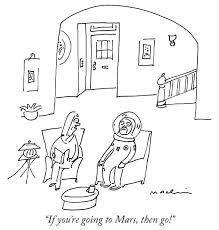As mentioned in class Tuesday...
Members of sensitive groups may experience health effects. The general public is less likely to be affected.
"...there are unhappy men who think the salvation of the world impossible. Theirs is the doctrine known as pessimism.
Optimism in turn would be the doctrine that thinks the world's salvation inevitable.
Midway between the two there stands what may be called the doctrine of meliorism, tho it has hitherto figured less as a doctrine than as an attitude in human affairs. Optimism has always been the regnant DOCTRINE in european philosophy. Pessimism was only recently introduced by Schopenhauer and counts few systematic defenders as yet. Meliorism treats salvation as neither inevitable nor impossible. It treats it as a possibility, which becomes more and more of a probability the more numerous the actual conditions of salvation become.
It is clear that pragmatism must incline towards meliorism..." Pragmatism by William James



